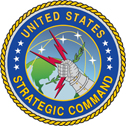
|
NEDERLANDS | ENGLISH
|
|
|
26 September 2005 |
 mail this article
| mail this article
|
 print
| print
|  
This article is part of the series: The coming war against Iran
[ 1 - 2 - 3 - 4 - 5 - 6 - 7 - 8 - 9 - 10 - 11 - 12 - 13 - 14 - 15 - 16 - 17 - 18 - 19 - 20 - 21 - 22 - 23 - 24 - 25 - 26 - 27 - 28 - 29 - 30 - 31 - 32 - 33 - 34 - 35 - 36 - 37 - 38 - 39 - 40 - 41 - 42 - 43 - 44 - 45 ]
De komende oorlog tegen Iran - Deel 1
Grote implicaties gevreesd
Door Daan de Wit
Het natuurgeweld in de VS heeft niet kunnen voorkomen dat de plannen om Iran aan te vallen nog steeds actueel zijn. Een oorlog tegen Iran wordt door de VS en Israël gezien als een mogelijkheid om uiteenlopende strategische doelen te bereiken. Militaire plannen, wetgeving en mentale manipulaties worden nu voorbereid en afgerond teneinde een oorlog tegen Iran te realiseren. In twee recente artikelen ziet auteur Webster Tarpley 'feverish US-UK preparations for a new 9/11 of state-sponsored, false flag synthetic terrorism which is intended in the intentions of the terrorist controllers in London and Washington to set the stage for the attack on Iran, as well as for martial law austerity dictatorships throughout the English-speaking world, and beyond.' Tarpley is schrijver van een boek over de rol van geheime diensten in het creëren van de cover stories bij 11 september en het uitvoeren van wat er daadwerkelijk op die dag is gebeurd. Het boek is getiteld 9/11 - Synthetic Terror - Made in USA; 'sythetische terreur' omdat de terreur op 911 niet afkomstig was van 'echte' terroristen, maar van de VS zelf. Hij sprak ook in Amsterdam tijdens de tournee van Jimmy Walter die tot doel had de waarheid bij 11 september aan het licht te brengen. Ikzelf sprak daar ook. VS zeggen geweld niet te schuwen In een uitgebreid artikel wijst Tarpley op de uitspraak van Bush, medio augustus, dat de VS geweld tegen Iran niet zullen schuwen: 'As I say, all options are on the table. The use of force is the last option for any president and you know, we've used force in the recent past to secure our country'. Bush' vice-president was al eerder begonnen met het slaan op de oorlogstrommels door te zeggen dat 'sterkere actie' nodig was als Iran niet zou inbinden. Teheran is al even stevig in zijn uitspraken, noteert de BBC: '[Voormalig president van Iran] Mr Rafsanjani said western opposition to Iran's decision to resume its nuclear programme would, as he put it, cost them dearly.' Het kon wel eens een minder boude uitspraak zijn dan het lijkt. Iran is namelijk geen murw geslagen Irak; Irak was jarenlang voorbewerkt, zoals we eerder schreven onder de kop Downing Street Memo's: Irakoorlog begon vóór begin, en Iran is een groot en sterk land. Het is onwaarschijnlijk dat een confrontatie met Iran een regionale kwestie zal blijken. Insiders verwachten oorlog tegen Iran Na de verkiezingen in de VS die Bush in het zadel hielden, noteerde journalist Seymour Hersh in een artikel getiteld The Coming Wars: '"This is a war against terrorism, and Iraq is just one campaign. The Bush Administration is looking at this as a huge war zone,” the former high-level intelligence official told me. “Next, we're going to have the Iranian campaign. We've declared war and the bad guys, wherever they are, are the enemy. This is the last hurrah—we've got four years, and want to come out of this saying we won the war on terrorism".' Hersh: 'In my interviews, I was repeatedly told that the next strategic target was Iran. “Everyone is saying, ‘You can't be serious about targeting Iran. Look at Iraq,' ” the former intelligence official told me. “But they say, ‘We've got some lessons learned—not militarily, but how we did it politically. We're not going to rely on agency pissants.' No loose ends, and that's why the C.I.A. is out of there.” [...] The hawks in the Administration believe that it will soon become clear that the Europeans' negotiated approach cannot succeed, and that at that time the Administration will act. “We're not dealing with a set of National Security Council option papers here,” the former high-level intelligence official told me. “They've already passed that wicket. It's not if we're going to do anything against Iran. They're doing it.”' Leger VS is begonnen met maken aanvalsplannen Een belangrijk argument bij de aanname dat een Amerikaanse aanval op Iran niet ver af is, is een deel van de rubriek Deep Background van Philip Giraldi, voormalig CIA-agent en werkzaam voor Cannistraro Associates, een bedrijf van Vince Cannistraro, een voormalig contra-terrorisme-chef van de CIA die als deskundige voor televisiekanaal ABC rapporteerde over de leugens en het bedrog van de Bushregering bij het organiseren van de Irakoorlog. Giraldi maakt zijn rubriek voor The American Conservative, een publicatie van conservatieven die het niet eens zijn met de neoconservatieve koers van de Bushregering.  Hij beschrijft hoe de oorlogsplanners van USSTRATCOM in opdracht van de regering anticiperen op een agressieve daad van Iran door het voorbereiden van een conventionele en/of nucleaire reactie (lees: een aanval op Iran): 'In Washington it is hardly a secret that the same people in and around the administration who brought you Iraq are preparing to do the same for Iran. The Pentagon, acting under instructions from Vice President Dick Cheney's office, has tasked the United States Strategic Command (STRATCOM) with drawing up a contingency plan to be employed in response to another 9/11-type terrorist attack on the United States. The plan includes a large-scale air assault on Iran employing both conventional and tactical nuclear weapons. [...] As in the case of Iraq, the response is not conditional on Iran actually being involved in the act of terrorism directed against the United States. [...]'. Hij beschrijft hoe de oorlogsplanners van USSTRATCOM in opdracht van de regering anticiperen op een agressieve daad van Iran door het voorbereiden van een conventionele en/of nucleaire reactie (lees: een aanval op Iran): 'In Washington it is hardly a secret that the same people in and around the administration who brought you Iraq are preparing to do the same for Iran. The Pentagon, acting under instructions from Vice President Dick Cheney's office, has tasked the United States Strategic Command (STRATCOM) with drawing up a contingency plan to be employed in response to another 9/11-type terrorist attack on the United States. The plan includes a large-scale air assault on Iran employing both conventional and tactical nuclear weapons. [...] As in the case of Iraq, the response is not conditional on Iran actually being involved in the act of terrorism directed against the United States. [...]'.Voorbereidingen Iranoorlog in volle gang  Schrijft Hersh: 'The Administration has been conducting secret reconnaissance missions inside Iran at least since last summer [2004]. Much of the focus is on the accumulation of intelligence and targeting information on Iranian nuclear, chemical, and missile sites, both declared and suspected. The goal is to identify and isolate three dozen, and perhaps more, such targets that could be destroyed by precision strikes and short-term commando raids. “The civilians in the Pentagon want to go into Iran and destroy as much of the military infrastructure as possible,” the government consultant with close ties to the Pentagon told me. Some of the missions involve extraordinary coöperation. For example, the former high-level intelligence official told me that an American commando task force has been set up in South Asia and is now working closely with a group of Pakistani scientists and technicians who had dealt with Iranian counterparts.' Schrijft Hersh: 'The Administration has been conducting secret reconnaissance missions inside Iran at least since last summer [2004]. Much of the focus is on the accumulation of intelligence and targeting information on Iranian nuclear, chemical, and missile sites, both declared and suspected. The goal is to identify and isolate three dozen, and perhaps more, such targets that could be destroyed by precision strikes and short-term commando raids. “The civilians in the Pentagon want to go into Iran and destroy as much of the military infrastructure as possible,” the government consultant with close ties to the Pentagon told me. Some of the missions involve extraordinary coöperation. For example, the former high-level intelligence official told me that an American commando task force has been set up in South Asia and is now working closely with a group of Pakistani scientists and technicians who had dealt with Iranian counterparts.''There has also been close, and largely unacknowledged, coöperation with Israel. The government consultant with ties to the Pentagon said that the Defense Department civilians, under the leadership of Douglas Feith, have been working with Israeli planners and consultants to develop and refine potential nuclear, chemical-weapons, and missile targets inside Iran. [...] “They believe that about three-quarters of the potential targets can be destroyed from the air, and a quarter are too close to population centers, or buried too deep, to be targeted,” the consultant said. Inevitably, he added, some suspicious sites need to be checked out by American or Israeli commando teams—in on-the-ground surveillance—before being targeted.' In februari schrijft The Washingon Post: 'The Bush administration has been flying surveillance drones over Iran for nearly a year to seek evidence of nuclear weapons programs and detect weaknesses in air defenses, according to three U.S. officials with detailed knowledge of the secret effort. [...] The aerial espionage is standard in military preparations for an eventual air attack and is also employed as a tool for intimidation.' Maar ook: '"It was clear to our air force that the entire intention here was to get us to turn on our radar," the official said. That tactic, designed to contribute information to what the military calls an "enemy order of battle," was used by the U.S. military in the Korean and Vietnam wars, against the Soviets and the Chinese, and in both Iraq wars. "By coaxing the Iranians to turn on their radar, we can learn all about their defense systems, including the frequencies they are operating on, the range of their radar and, of course, where their weaknesses lie," said Thomas Keaney, a retired U.S. Air Force colonel and executive director of the Foreign Policy Institute at Johns Hopkins University. But it did not work. "The United States must have forgotten that they trained half our guys," the Iranian official said.' Voormalig Labour-minister Tony Benn schrijft in een commentaar in The Guardian over de wijze van aanvallen: 'It is inconceivable that the White House can be contemplating an invasion of Iran, and what must be intended is a US airstrike, or airstrikes, on Iranian nuclear installations, comparable to Israel's bombing of Iraq in 1981. Israel has publicly hinted that it might do the same again to prevent Iran developing nuclear nuclear weapons. Such an attack, whether by the US or Israel, would be in breach of the UN Charter, as was the invasion of Iraq. But neither Bush, Sharon nor Blair would take any notice of that.'
____________________________________________________________________________
DeepJournal Sign up for the free mailing list. |